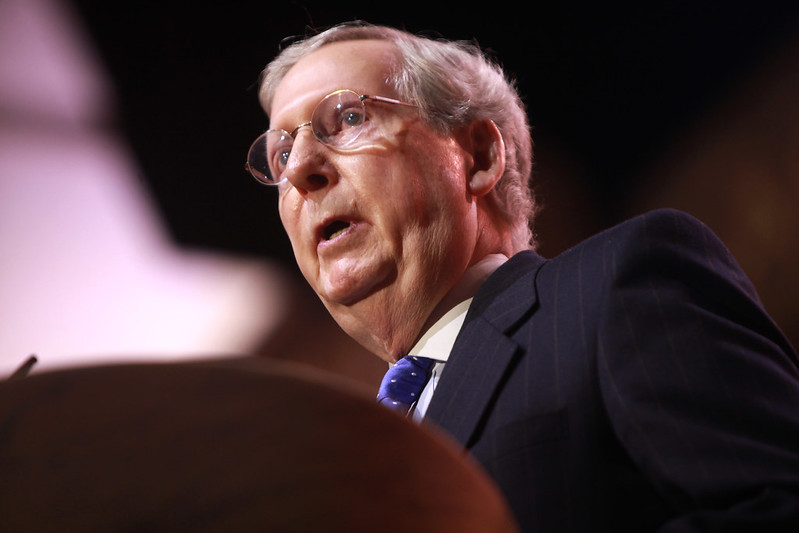The federal $600 unemployment benefit expires today. What can we expect from the Senate?
(Gage Skidmore/Flickr)
Republican Senate Majority Leader Mitch McConnell, said the proposal for a new stimulus package will be laid out early next week.
July 25, 2020
Since the beginning of the pandemic, those receiving unemployment insurance have been provided with an extra $600 per week in addition to their weekly paycheck, as part of the funding from the Federal Pandemic Unemployment Compensation from the federal government.
The extra $600 in weekly benefits will expire at the end of July. For many, this was the last week to qualify for the additional $600, which has kept the jobless population afloat during this unprecedented time.
The looming expiration of these benefits at the end of July created uncertainty for the millions who are still relying on unemployment benefits.
The elimination of this benefit will affect tens of millions of people. Over 30 million jobless workers claimed unemployment insurance for the week of July 4, according to the Department of Labor.
Indivar Dutta-Gupta, the co-executive director of Georgetown University’s Center on Poverty and Inequality, said the loss of this $600 weekly benefit will greatly impact individual income.
“People are facing income losses of 50, 60, 70-plus percent,” Dutta-Gupta said in an interview with NPR.
The weekly benefit amount differs from state to state and depending on where one applies for unemployment insurance, the $600 can be a great loss. Mississippi, the state with the lowest unemployment benefits, offers jobless workers a maximum amount of $235 per week.
According to a summary of a draft released by the New York Times, Republicans have nearly decided on a plan for the next relief package. Federal aid would include more stimulus checks for individuals, aid to small businesses and an extension of additional unemployment benefits.
In terms of renewing additional unemployment benefits, the document stated “there will be some type of extension of the enhanced benefit, but likely not $600 a week.”
Republicans have argued that the $600 in weekly benefits discourages people from returning to work or searching for new jobs. The additional benefits would likely be calculated based on individual income loss.
Additional stimulus checks will be sent out, but it is unclear how much will be included in the payment and who will be eligible to receive stimulus checks this round.
As part of allocations to the Labor, Health and Human Services subcommittee, a total of $105 billion would go towards education, with $30 billion dedicated to K-12 schools that are reopening.
“The administration has requested additional time to review the fine details, but we will be laying down this proposal early next week,” said Mitch McConnell, the Republican senate majority leader from Kentucky.
Prior to drafting this package, the Senate was expected to vote or amend the Health and Economic Recovery Omnibus Emergency Solutions Act. The HEROES Act was “dead on arrival” at the Senate, as Senate Republicans hinted at drafting their own plan.
The House passed the HEROES Act in May, which proposed to continue the additional $600 in weekly unemployment benefits through Jan. 2021, issue more stimulus checks and increase student loan forgiveness. The HEROES Act also included tax-paying immigrants and adult dependents as eligible recipients of stimulus checks, as they were previously excluded from the Coronavirus Aid, Relief and Economic Security Act.
The $3 trillion package included one-time individual payments for those that were excluded from the coronavirus aid bill, including the $1,200 for up to three dependents per household and $1,200 checks for immigrants with taxpayer identification numbers.
